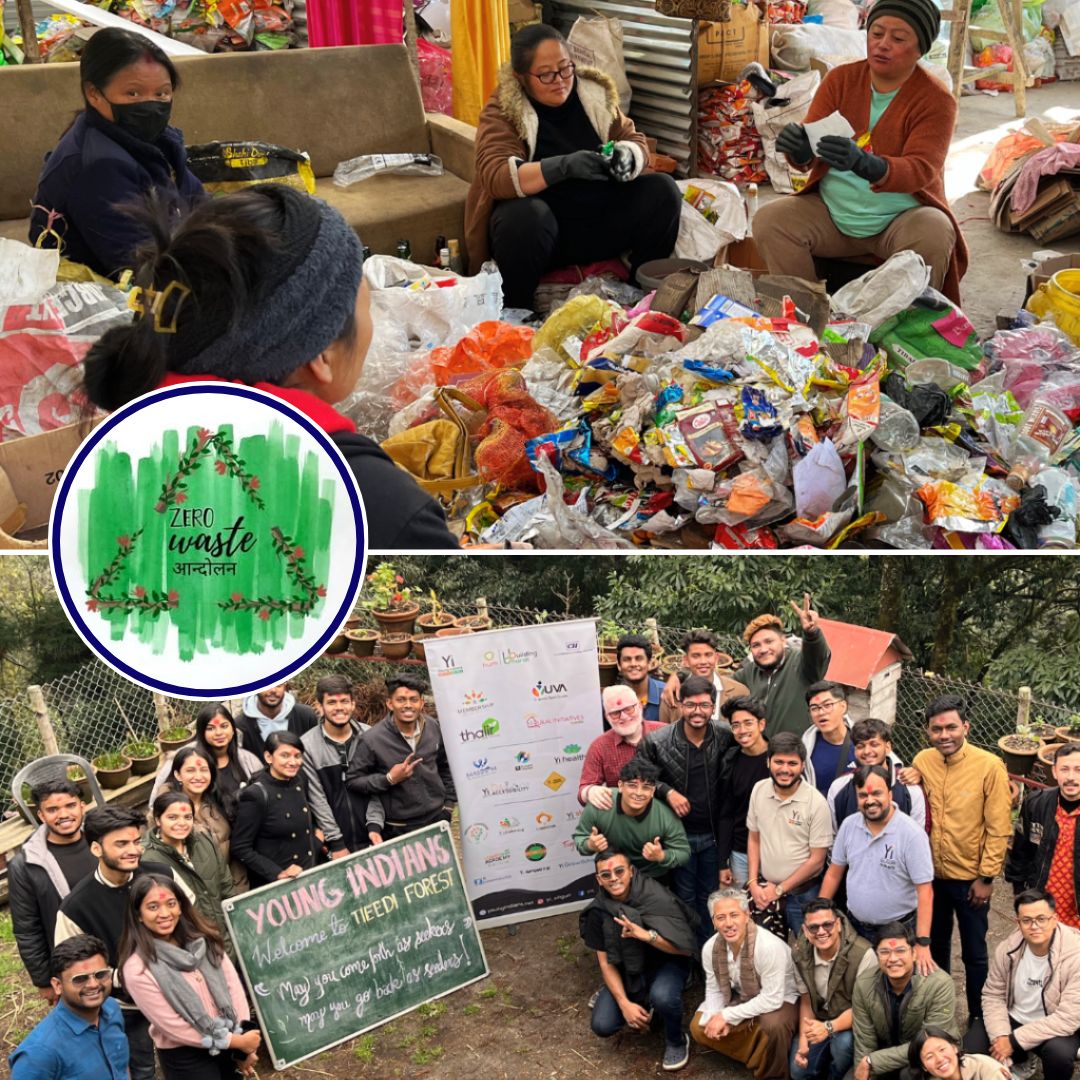The Zero-Waste Andolan, a grassroots initiative launched by Tieedi Forest Garden in Sonada near Darjeeling, is transforming waste management in the Eastern Himalayas. Addressing the region’s lack of local waste processing and surging waste volumes from tourism, the movement promotes decentralised community-driven solutions like waste segregation, composting with a custom cold-climate accelerator, upcycling, and recycling.
It has achieved zero-waste status in over 100 households, shops, schools, and three villages, including Rajahata Basti, the first zero-waste village. The initiative also supports dignified livelihoods, has garnered government and National Geographic recognition, and is scaling its impact across the region.
Local Innovation and Community Engagement at the Core
The Zero-Waste Andolan focuses on behavioural change through workshops and door-to-door campaigns, empowering households, businesses, schools, and tourists to handle waste sustainably. Its Material Recovery Facility processes 53 categories of locally segregated waste, vastly cutting transport emissions.
A notable innovation, the ‘Catalyst’ compost accelerator, uses indigenous microbes to ensure effective composting even in Darjeeling’s cold climate. Sub-initiatives like Laali Guras promote eco-friendly menstrual products, highlighting inclusivity and reducing plastic waste. Local government officials actively support the Andolan, recently inaugurating Rajahata Basti’s zero-waste status in a celebrated ceremony.

Darjeeling’s Waste Crisis and the Birth of the Andolan
Darjeeling generates 30 to 45 metric tons of waste daily but has no accessible treatment centres nearby, leading to waste transport over 50 kilometres to Siliguri and pollution of land, air, and water.
Rapid tourism growth and poor segregation worsen this, aggravated by the region’s vulnerability to climate change, with expected temperature rises well above global averages.
Founded in 2016, the Zero-Waste Andolan emerged as a participatory, decentralised solution focused on empowering communities to adopt sustainable waste practices and regenerative livelihoods, providing a scalable model for other Himalayan landscapes.
The Logical Indian’s Perspective
The Zero-Waste Andolan exemplifies how informed, community-led initiatives can effectively address environmental crises while fostering social dignity and economic empowerment. It proves sustainability arises not just from technology but through education, empathy, and cooperation.











